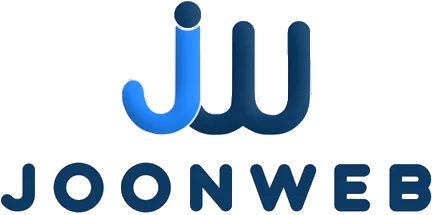When setting up a website for the first time, you'll often hear individuals talk about how important it is to use optimal SEO strategies. However, while optimization embedded into your website's architecture is crucial, it is far from the end of the story. It is critical that you view SEO as an ongoing activity that is subject to change.
Consider the month of September 2019. A Google core algorithm update resulted in significant changes in search rankings across all businesses and categories.
Companies that did not routinely assess their SEO status risked losing the rankings they had fought so hard to achieve. Don't find yourself in a similar predicament. This article contains SEO tips to boost website traffic.
What Is SEO & Why Is It Important?
If you're not familiar with search engine optimization, it's the process of improving the ranking of your website and pages on search engines like Google organically. Keyword research is vital aspect of a good SEO strategy.
For small to medium-sized organizations, the performance of your website's keyword SEO can make or destroy your company. It can either open the door to thousands of clients or ensure that your company is never discovered.
With the growth of eCommerce in recent years, competition for prominent keywords is fiercer than ever. There has never been a more critical time for businesses to get SEO correctly. The following recommendations and advice are intended to assist as many different sorts of businesses as possible.
They're based on the most recent and emerging SEO trends, so you'll always be one step ahead of the competition. Given below are the Top 10 SEO tips & strategies to boost traffic on your website in 2022
Top 10 SEO Tips & Strategies To Boost Traffic On Your Website In 2022
1. Keep Your Content Properly Organized
In many industries, multi-channel marketing has become the norm. eCommerce platforms such as JoonWeb make it easy for small and medium-sized businesses to sell across various venues, such as online stores.
This means that a company's messaging and points of sale are increasingly likely to be spread over various digital platforms. It's worth noting, though, that even Google algorithms can struggle to understand the context of small pieces of content (such as successful Tweets).
To guarantee that your content performs as effectively as it can for SEO across all platforms, it's a good idea to structure it so that search algorithms can understand it. Remember, loading time is affected by the structure of your website content
2. Promote Your Business Through Online Videos
It's no secret that video material is increasingly dominating internet consumption, and this trend is expected to continue in 2022. According to current predictions, online videos will account for about 80% of all online traffic in the coming days.
More video content is desired by more than 40% of individuals. More people are drawn to video than any other type of online material. Aside from its prevalence, one of the major advances pushing video's prominence in SEO is how Google algorithms are becoming increasingly adept at assigning video content the ranking it deserves.
As the algorithms improve their understanding of video content, it will be possible for them to appear in more relevant searches. Wherever possible, businesses should explore adapting material to video and ensuring that such videos are search-engine optimized.
3. Provide Top-Of-The-Line User Experience
If you asked an SEO marketer a few years ago, they would have told you that user experience (UX) design was the work of a separate department. Historically, marketers focused on generating incoming traffic while paying little attention to the user experience on their own websites.
Examine your clients' journeys across your site and optimize your pages to make them easy to navigate, simple to understand, and quick for visitors to find the information they require. If the user experience is good, then the client retention rate will also be very high.
4. Keep Track Of Your Competitors
While it has always been a good idea to keep an eye on what other organizations in your industry are doing, there are technical options to do so with SEO.
There are numerous new tools on the market that will allow you to reverse-engineer the SEO success of your competition. SEO tools help you track your target keywords & see how others are performing.
Tools like Ahrefs and SEMrush both show marketers how well their competitors are performing and provide some insight into how they are performing. These are some of the best tools to track organic traffic to a website.
There are two methods to put these thoughts into action:
- Companies may want to imitate their competitors in order to close the gap between them.
- In other cases, these tools can assist you in developing a unique selling point that will set you apart.
If you're already doing half-decent SEO, chances are your competitors are looking at what you're doing to gain an advantage. Do not allow yourself to fall behind.
5. Mobile SEO
Mobile SEO is not a new trend, but it is one that many small businesses face. One common misconception is that "mobile SEO" is simply SEO on smartphones.
There are three basic approaches to mobile SEO:
1. Responsive web design, in which the same URL and HTML are used but the display varies depending on the user's browser.
2. Dynamic serving, in which the server of the business sends different HTML and CSS to the same URL depending on the user's device.
3. Separate URLs, in which mobile users are redirected to a completely different URL with HTML tailored to their device.
6. Remove Anything That Is Causing Your Site To Lag
It cannot be overstated how simple it is to perfect the technical parts of your website and specific content. Your website must be quick, accessible, and straightforward to use, whether you're providing useful content, offering a product/service, or simply sending folks in the right direction.
Nowadays, people want instant information and outcomes. If your site takes too long to load, they will simply leave.
There are several techniques to increase site speed and overall UX smoothness: eliminate old/defunct plugins, clean up your code, optimize and compress your images, ensure your sub-folders flow and make sense, and use tools like Google Page Speed Insights and others. Make sure that your internal links are working
7. Authoritative Content
We're sure seasoned SEO marketers would shout that this isn't really a fresh notion for 2021, but it's worth noting that it's still relevant. Until recently, many content & SEO marketers considered publishing as a numbers game in order to gain shares.
The norm was to produce hundreds of pieces of content per month in the hopes of achieving a degree of virality. Unfortunately, according to a recent survey, social sharing of content has dropped by 50% in the last several years. This is most likely due to content saturation among consumers, who are constantly blasted with it.
This emphasizes the significance of creating authoritative, evergreen content. Instead of aiming for a quick viral hit, you should try to make your content the go-to location on the internet for the information it provides. Make it high-quality and extremely relevant to achieve this.
8. Formatting Content For Featured Snippets
These days, featured snippets pretty much control the SERPs (Search Engine Results Pages). Even if you haven't heard the word before, you're probably familiar with them. They are the highlighted answer boxes that show at the top of most search results pages. You're doing something right if you can get a featured snippet.
To increase your chances of landing a featured snippet, use bullet points, numbered lists, infographics, and directly answering question-based searches, to name a few formatting and style choices. While research suggests that snippets do not always result in direct clicks, because the search query is answered in the Google preview itself, snippets have shown in over 19 percent of SERPs and counting.
9. Use Advanced Analytics Tools
While the methods above will help your SEO, the only way to know if they are beneficial is to analyze traffic data correctly. For years, Google Analytics has been a cornerstone for SEO marketers, and it still is. However, a growing number of technologies are leveraging the potential of AI to gain insights.
To deepen their grasp of search, successful SEO managers are turning to innovative technologies such as
- Needl, a Google Analytics extension that identifies patterns in search behavior.
- Canecto is a tool that generates content optimization and customer journey reports.
- Archie, a Google Analytics tool that functions similarly to Siri, allowing you to conduct search-related inquiries.
10. Keep An Eye Out For Google Algorithm Changes
We've previously mentioned it briefly, but Google is getting smarter and more intuitive by the day. The basic alterations and tweaks to the algorithm are ongoing and usually unexpected, with sites gaining or being penalized based on how closely they adhere to the most recent update.
Rankings and penalties are influenced by a variety of factors, such as accessibility, speed, excessive advertising or spammy content, and so on. While it is not always feasible to avoid it, there are a few basic steps you may take to keep in touch. To begin, sign up for industry websites and forums to remain up to date on recent and planned updates.
Google's Search Console Community is a great place to start – and remember to monitor your traffic using services like Google Analytics and SEMrush on a regular basis to detect where updates may have occurred and adjust accordingly.






